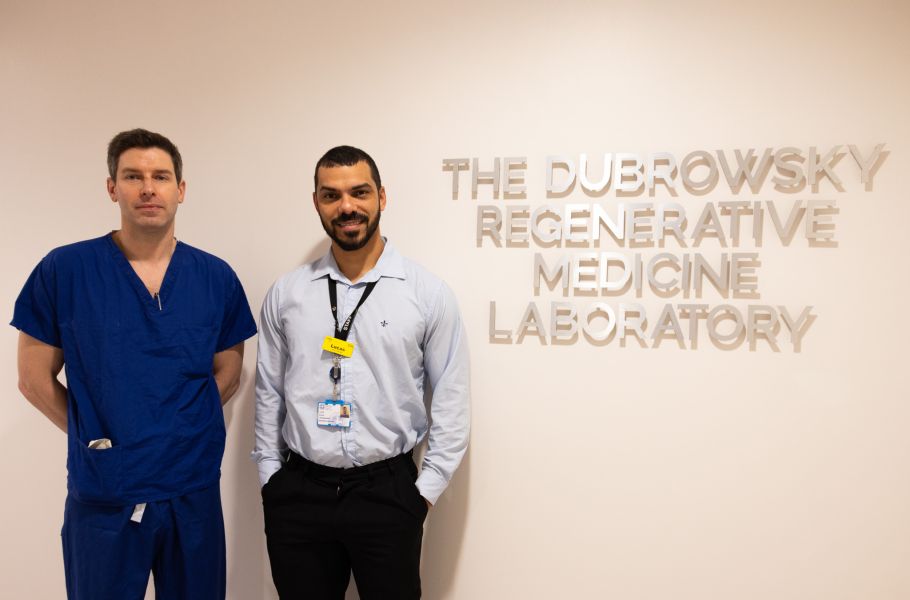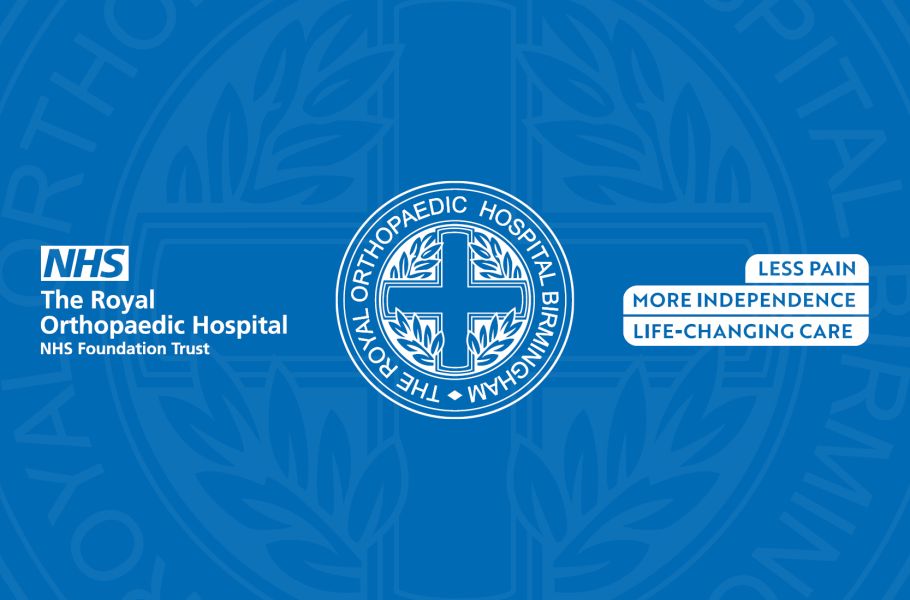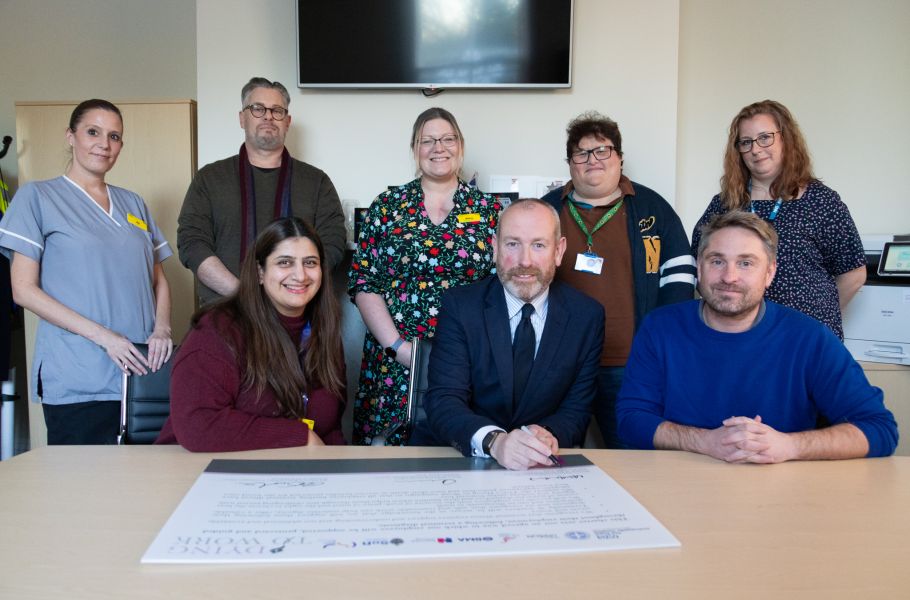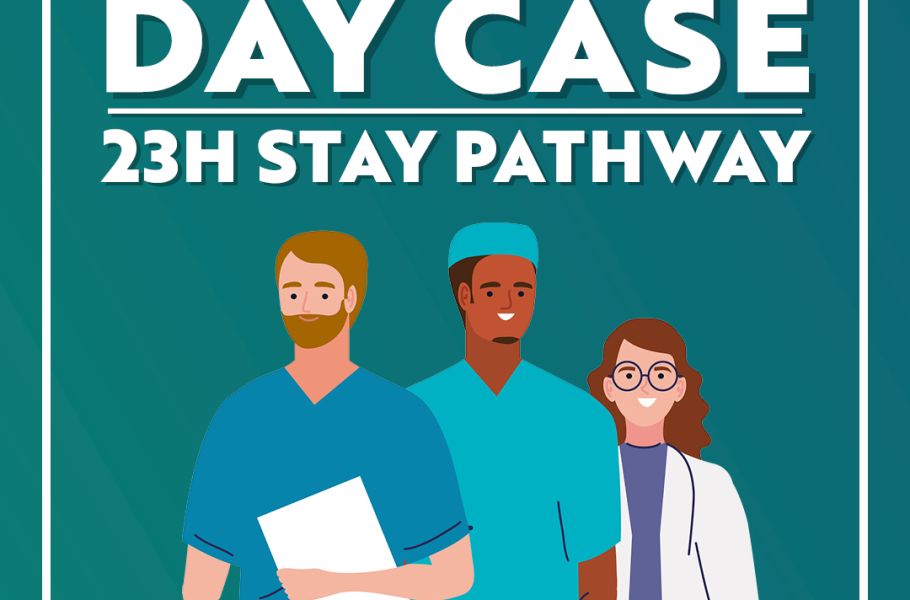Wellbeing Week - Tips for managing wellbeing as a patient
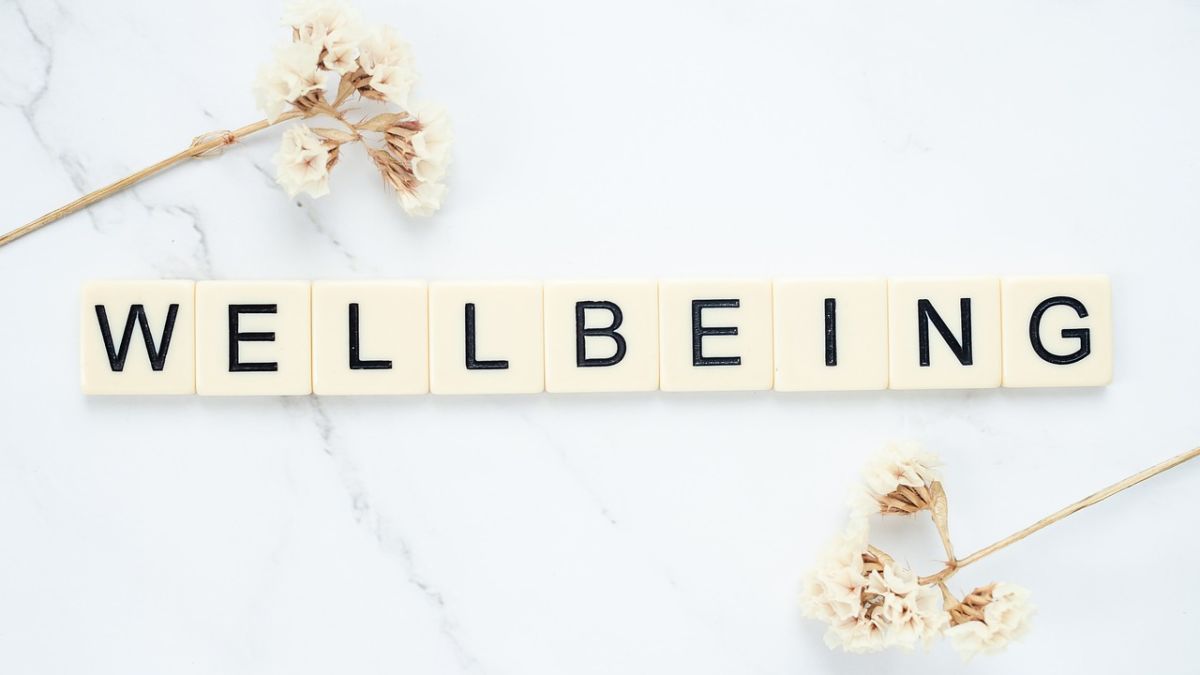
We’ve been celebrating Wellbeing Week at the ROH and as part of our activities we reached out to a few patients and colleagues for their tips on managing wellbeing as a patient. Here are some of their experiences, and what tips have helped them.
Shaun
Spinal department - Scoliosis
Shaun is nine months post op from spinal fusion to correct his scoliosis.
“There has been nothing really that I didn’t expect. I understood that pain would be a massive factor in this, but it progressively got better with me moving around and trying to be active and that it would be challenging but in the end it is all worth it! Everything so far has gone amazing with my recovery, everything has healed very nicely. My body has still got a curvature but I can see the difference that has been made and I am very proud of it.”
Shaun’s tips:
☆ Understanding the whole surgery can be difficult for a young person or maybe even an adult but it was completely safe and listening to doctors/surgeons will help you out a lot.
☆ Stay strong throughout your first appointment all the way to your surgery and any questions unanswered is a MUST ask, best thing is to ask your worries like myself since it made me feel better.
☆ Stay positive: Focus on the long-term benefits of the surgery and celebrate small milestones during recovery.
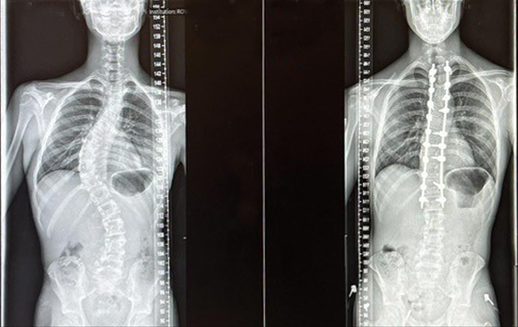
Shaun’s spine before and after corrective surgery
Tor
Oncology department - Maffucci Syndrome
“No matter how bad life feels for you right now, however bleak you feel your future might be there are little pockets of happiness and joy all around us. We just have to look a little bit closer for them. That is where mindfulness meditation came in for me. It was to help manage my chronic pain and my mental state. A lovely Macmillan counsellor worked with me. She taught me the techniques and as the weeks went by I slowly started to feel brighter. I learned a lot about myself along the way and processed a lot of grief and trauma surrounding my rare condition.
Here are some of the things that I found helped me then, and have continued to help me to this day.
☆ Let your emotions out!! If you're like me and sometimes struggle with this, it can help to watch a film that you know you'll cry to, or a song that hits you right in the heart. Crying helps release excess cortisol in our bodies. Cortisol is a stress hormone and by crying it can help alleviate emotional stress and the physical tension that comes with that. In turn this can help with any physical pain you may also be experiencing.
☆ Mindfulness meditation-Sitting quietly, following your breath, feel the rise and fall. Learn to be in the present moment. It can really help give you a sense of peace and tranqulity. There are so many podcasts and videos online to guide you through meditations. These are great if you are new to it. I recommend Vidymala Burch. She has a book for chronic pain and I use her meditations regularly. Meditation has helped me accept what is.
☆Mindfulness-I carry the mindfulness from meditating through into my every day life now. It has healed me to look for the joy, more aware of being present and of my feelings, my emotions and my place in the world. In these moments no matter where you are, it brings you into the present and not off someplace your mind decides to take you. You are in control of the here and now.
☆Find something that makes you happy! It could be an activity, hobby or an interest you have. Maybe get creative or learn something new. If you are able to get out, maybe join a club. Meet new people, even if it feels a bit scary. You might just have the best time!
☆Talk to someone. I found counselling hard, but empowering. I finally felt like I was taking control of all the feelings eating up inside me. There are many support lines you can call. It is often easier to talk to someone you don't know. We do worry about upsetting family sometimes or feel a burden. Please know, we are NOT a burden! I remind myself, that if the roles were reversed I wouldn't want anyone to feel they couldn't come to me if they needed anything.
☆Be kind to yourself! Why do we find it too hard? We would never be unkind to others so why are we so often unkind to ourselves. We deserve kindness, compassion and care. It might be difficult *I still find it challenging, but give it a try. Go gentle on yourself...You deserve kindness!!
While you’re waiting for surgery there’s a lot you can do to support your body and mind. Staying active, eating well, and preparing ahead makes a real difference in your recovery. Sue Cox, Matron at the Royal Orthopaedic Hospital, shares some top tips:
Managing Anxiety and Stress
- Stay informed - ask your healthcare provider about the surgery schedule, expected wait time, and any updates.
- Practice relaxation techniques - engage in activities that help you relax, such as meditation, deep breathing, or yoga.
- Stay connected - reach out to friends, family, or support groups for emotional support.
Preparing Physically
- A balanced diet helps with better recovery. You’ll want to aim for protein-rich foods (chicken, beans, eggs) to support healing and eat fruits and vegetables for vitamins that promote immunity.
- Hydrate Well and make sure you’re regularly drinking water unless you’re on fluid restrictions.
- Limit alcohol & smoking. Even small changes can help - reducing smoking 2–4 weeks before surgery can improve healing and reduce complications.
- Keep moving safely, such as gentle walks or stretching, as advised by your care team. This can help prevent muscle loss and keep up your mobility.
- Finally, optimise any on-going health conditions by maintain good control of diabetes and blood pressure. If needed you can also visit your GP for medication reviews.
Please visit the waiting well site for more guidance and support: Royal Orthopaedic Hospital - Waiting well for surgery
